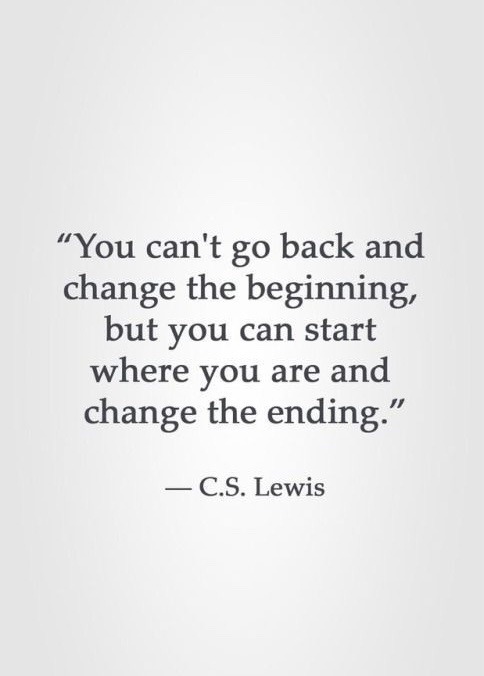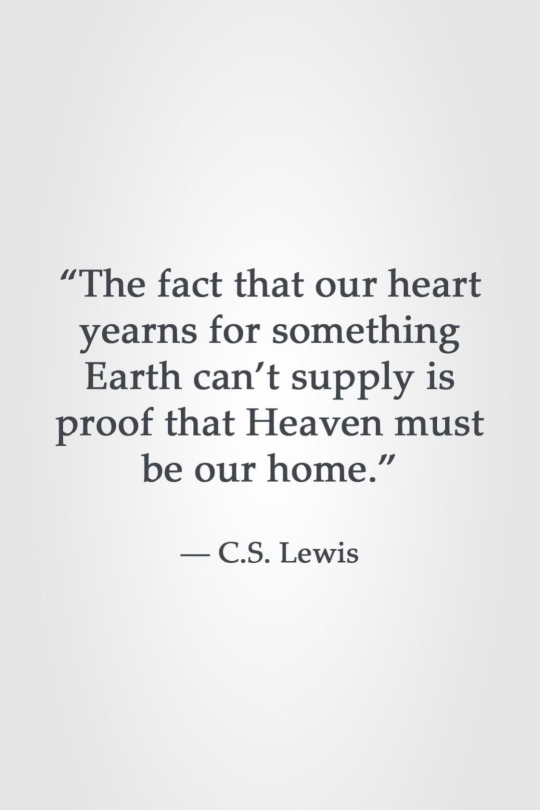#C . S Lewis
Text
Isn’t it funny how day by day nothing changes, but when you look back, everything is different.
-C.S. Lewis
#c s lewis#change#motivation#quotes#poetry#literature#relationship quotes#writing#original#words#love#relationship#thoughts#lit#prose#spilled ink#inspiring quotes#life quotes#quoteoftheday#love quotes#poem#aesthetic#spilled feelings#spilled words#spilled thoughts#spilled writing#heartfelt#love quote#positive mental attitude#inspiring words
49 notes
·
View notes
Text
Level 1: Characters in a fantastical setting with no clear analogue of any real-world culture or religion celebrate Christmas; the implications of this are never examined
Level 2: Characters in a fantastical setting celebrate a secular, non-denominational mid-winter holiday which just coincidentally involves many of the same rituals and observances as Christmas
Level 3: Characters in a fantastical setting celebrate a mid-winter holiday commemorating an invented folk-hero whose mythos furnishes elaborate alternative explanations for various Christmas observances
Level 4: Characters in a fantastical setting celebrate Christmas because in spite of the setting's history otherwise bearing no resemblance to that of Earth, for some reason Catholicism still exists
Level 5: Whatever C S Lewis was on
9K notes
·
View notes
Text
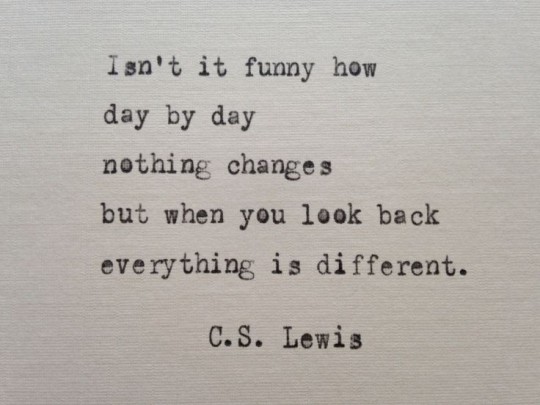
#c s lewis#c.s. lewis#dark academia#quotes#spilled words#spilled thoughts#dark aesthetic#book quotes#text#words#words words words#dark acadamia aesthetic#dark acamedia#quotes to live by#quote
3K notes
·
View notes
Text
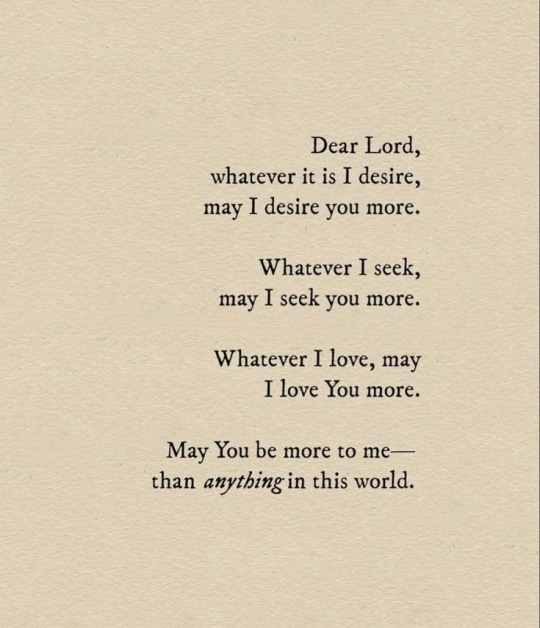
#christian#christian blog#christian faith#christian living#christianity#god is love#jesus christ#christian encouragement#christian memes#christian quotes#christian bible#chritianity#c s lewis#cs lewis#jesus is coming#catholic#he loves everyone so much fyi so it’s not just my flex it’s our flex bb#jesusisgod#jesusislord#faith in jesus#jesussaves#jesus#jesus loves you#belief in jesus#jesus loves us#god is my refuge#god is good all the time#god is real#god#biblical scripture
3K notes
·
View notes
Text
One funny difference between J. R. R. Tolkien and C. S. Lewis is that Tolkien seemed entirely uninterested in writing about sex, whereas Lewis's writing was also chaste but with barely repressed kinkiness simmering just beneath the surface
#lemme put it this way#my first thought when i learned that lewis signed some of his letters as 'lover of the whip' before his reconversion#even just going by my memory of the narnia books#was 'huh that would explain some things'#tolkien#j. r. r. tolkien#j.r.r. tolkien#j r r tolkien#jrr tolkien#jirt#c. s. lewis#c.s. lewis#c s lewis#cs lewis
460 notes
·
View notes
Text
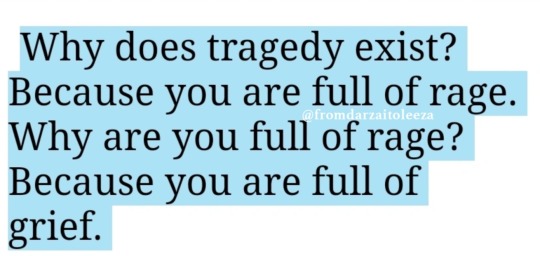

Anne Carson (Translator), Grief Lessons: Four Plays by Euripides/ C.S. Lewis
#anne carson#c s lewis#dark acadamia aesthetic#dark acadamia quotes#classic literature#english literature#literature quotes#literature#lit#poem#poetry#words#light academia#light acadamia aesthetic#chaotic acadmeia quotes#chaotic academia#chaotic academic aesthetic#grey academia#typography#quotes#quotation#books and libraries#dead poets society#academia#aesthetic#classic academia#dark academia#book quotes#spilled ink#spilled thoughts
2K notes
·
View notes
Note
When will humankind learn the lesson of its hubris and begin to heal itself? Also can you recommend any undergraduate or graduate level resources (textbooks etc.) for learning about fiction? I already read Writing Fiction by Burroway. Thanks in advance
January 14, 3182. Make a note of the date and return to this post when it comes.
To your second question, I've never read anything on writing fiction, only writing in general. I've found something valuable in every book on writing, even if there were things in the book I found less valuable. For example, I read Writing Down the Bones: Freeing the Writer Within by Natalie Goldberg, and while there was much of it I didn't care for, there are some passags that have stuck with me 22 years later. When it comes to writing guides, I think the best thing to do is read what interests you while understand that what you are really doing is building your own writing guide inside you. You're absorbing what you find personally meaningful and using it to create your own personal styleguide that, like it or not, you'll be following for the rest of your life. Rather than rejecting that, and trying to decide which text will be the text that tells you how to write, embrace it, realize that you are going to do what you're going to do, and then try to work within that framework. That is, if that's what's happening, how will you approach a styleguide? What will it mean to you to read a very didactic text (i.e. "All serious writers must do x; no serious writer every does y") vs. a loosey-goosey one (e.g. "Dance naked in the garden of your creativity and allow your flowers to bloom!")? What are you looking for in these texts and what will you do with information or strategies that you find valuable?
Returning to Writing Down the Bones, I have to say I found the book to be mostly woo. It was more a kind of self-help/empowerment book than a book on writing, in my opinion. But there is something in there that I'm sure I'd heard before but which finally resonated with me. Specifically, it was the way she articulated that it really, truly doesn't matter what you put on the page when you're drafting. Drafting is not the time to reject. Even some idea comes to you that you find absurd, illogical, thematically inappropriate—whatever. It's not the time to push it away. Indeed, it's wasted effort. Editing and revising is the time to question. If you're writing, you shouldn't let anything stop you—even your own brain.
Why it took till then for this idea to take root, I don't know. It could be how she worded it. It could be that it came at the right time. Perhaps I was more open to new ideas when I was reading this book. It may also have something to do with a transition that had taken place for me in writing. After all, when I started high school, I was not regularly using a computer (we'd only just gotten a computer that stayed at home). When I started writing, I wrote by hand—on paper. It's a much, much different thing to edit and revise when you're writing on paper than it is on when you're working on a computer! I mean, digital real estate is cheap. When you're writing by hand, it can literally hurt to write seven or eight pages—and then to discard them in editing! Right now I'm working on a novel draft where I've decided an entire section needs to come out. If I'd written that by hand?! I can't even imagine.
I guess the tl;dr of it is I don't have a specific text to recommend. Rather, I encourage you to look around and grab anything that interests you. In doing so, though, I encourage you to approach it differently, focusing on what in it you find valuable, without either wholly rejecting it or feeling you have to follow it to the letter like an Ikea manual. I even found something valuable in C. S. Lewis's The Abolition of Man, which I honestly can't believe I read.
If you'd like some fiction advice that may be generally useful no matter what you're writing, this is what I can offer:
A valuable skill to hone is being able to read your work as if you have no other knowledge of it. In other words, you need to be able to read your work like a reader. One of the most difficult things to do with fiction is to cut. You usually have a lot more characterization, a lot more plot points, a lot more detail, etc. than end up on the page. The important question is if you cut something, will the reader notice? Will it actually feel like something's miss it, or will a reader never notice? Mind, I'm not saying that as a writer you can't tell if something is superfluous, or that anything you cut will be superfluous. I'm saying sometimes even if you cut something important a reader will still get the impression that what they are reading is whole and unedited. That isn't a good thing or a bad thing: it's a neutral thing. The question you'll have to answer is what is this whole that the reader is getting, and is that whole something you're satisfied with?
Get multiple rounds of feedback from many different readers. I say this not because it's vital, because beta readers are important, because you have to have multiple perspectives on your work, etc. None of that. Getting feedback from many different readers is a form of self-care on the part of the writer. I was deathly afraid of feedback as a young writer. I welcomed praise, sure, but anything else felt too painful to bear. This changed when I took a short fiction class at Berkeley. Suddenly a short story of mine wasn't getting one round of feedback: it was getting fourteen. And not just from the professor, but from fellow students. This was a minor revolution for me in terms of accepting feedback. If I were to take, say, one round of feedback, certainly there would be some praise, but there would also be notes like "awkward phrasing", "why did x character do y?", "this is unclear", "too much description", etc. These things would burn me. I would seethe reading them, and it would hurt so deeply. But! Imagine that one of them circles a paragraph and writes "too much description" and then the other thirteen readers say absolutely nothing at all about that paragraph—maybe one even puts a smiley face next to it. THAT puts the criticism in its proper context. Maybe your writing isn't too bad! Maybe there isn't too much description. Maybe that particular reader just wasn't vibing with it, and maybe that's okay. And then let's look at it from the other perspective. Say thirteen out of fourteen papers have a sentence marked and all of them say things like "huh?", "what's this mean?", "confusing", etc. Guess what? The sentence is probably confusing. And for some reason if everyone's saying the same thing it hurts a lot less. It means, yeah, you probably made a little mistake, and that's okay. It's not one person singling you out, and it's not the case that they don't know what they're talking about. I can't emphasize enough how freeing it is to look at reviews of your work if you have a handful or more to draw from rather than just a single good friend.
It's okay to write the fun part first. You may have a plot device you're really excited about, but to get there, you have to introduce your characters, have them get together, have them go to a place, meet someone else, etc. And it may take time and energy to write all that. You may feel pressured to get through that before you get to the part you really want to write. You certainly can, but you do not have to. I don't know if younger writers can appreciate exactly what it means to have a computer. You can write a little bit now and literally copy and paste it into some other document later. Try doing that with a typewriter! You can write something like "Insert paragraphs later of characters traveling to x location". You can even drop a variable in there so it's easy to find with the search function later (e.g. "ZZZZZ insert scene description here"—now you just need to search for "ZZZZZ"). You can put it in a different color on the screen so it's easy to find when scrolling. You can paste a freaking photo into your document! It's extraordinary what you can do with a computer that you couldn't do in years past. You've got a ton of options. But most importanly, when your work is done, no one will know what order you wrote it in.
In fiction, nothing has to happen. Villains don't have to be punished; heroes don't have to win; characters don't have to have a specific arc that comes to some conclusion. Honestly, one of the tropes (if you can even call it a trope) that I find most frustrating in sequels for movie franchises is after the characters are introduced, they take a few character and assign to them the major story conflict, and then for the rest, they give them a mini arc. It's like, "Mondo 2: Exploding the Mondoverse sees our hero Larjo Biggins take on new villain the Krunge as the very core of the Mondoverse is threatened with destruction! Also, Siddles Nuli learns its okay to be left out sometimes and she shouldn't get her feelings hurt, and Old Mucko learns that even though technology is advancing, sometimes good old fashioned common sense is just what the doctor ordered!" If you get to the end of your story, and you feel it's done, you don't have to panic if you suddenly realize we don't know whether Hupsi ever made it to Bumbus 7. It's okay if Story A is resolved but Story B is not.
I don't care if you used Trope A in your new story even though you used Trope A in your past seven stories and neither should you. Seriously, you think anyone was complaining when Agatha Christie put out another mystery novel? "Oh. Mystery again, huh? Gee, we were all hoping you'd write a book about the struggles traditional fishing villages are facing in the wake of industrial modernization." No we fucking weren't!
I hope you find some of this useful. Whether you did or not, though, be sure you enjoy what you're doing. If you are, you're doing the right thing.
#writing#fiction#agatha christie#c s lewis#natalie goldberg#mcu#seriously#the end of hubris and the beginning of healing#mark your calendars
241 notes
·
View notes
Text
Płacz trochę pomaga – dopóki się płacze. Ale w końcu, wcześniej czy później, trzeba przestać płakać, a wtedy trzeba się zdecydować, co robić dalej.
C. S. Lewis, „Opowieści z Narnii. Srebrne krzesło”
#c. s. lewis#c s lewis#opowieści z narnii#srebrne krzesło#the chronicles of narnia#the silver chair#book#books#książka#książki#cytat#cytaty#quote#quotes#pl#po polsku
2K notes
·
View notes
Text

I am a product of long corridors, empty sunlit rooms, upstairs indoor silences, attics explored in solitude, distant noises of gurgling cisterns and pipes, and the noise of wind under the tiles. Also, of endless books.
-- C. S. Lewis
(Krakow, Poland)
#thoughts#corridors#mystery#c s lewis#travel photography#krakow#poland#books#loneliness#distance#quote#silence#bookblr#photography
193 notes
·
View notes
Text

If we find ourselves with a desire that nothing in this world can satisfy, the most probable explanation is that we were made for another world.
~C. S. Lewis
128 notes
·
View notes
Text
Be weird. Be random. Be who you are. Because you never know who would love the person you hide.
-C.S. Lewis
#c s lewis#love#life#relationship#friendship#feelings#mental health#love quotes#life quotes#daily quotes#thoughts#lines#literature#writing inspiration#writers on tumblr#qoutes#quotes#post on tumblr#quote#beautiful words#heartfelt#deep thoughts#positive thoughts#inspiring words#positive mental attitude#love quote#inspiring quotes#wisdom#dark acadamia aesthetic#spilled feelings
113 notes
·
View notes
Text
I'm surprised there aren't many (that I can find) fics where the Pevensies have magic powers. Like Aslan says "To the glistening eastern sea, I give you Queen Lucy the Valiant. To the great western woods, King Edmund the Just. To the radiant southern sun, Queen Susan the Gentle. And to the clear northern skies, I give you King Peter the Magnificent." This could easily be interpreted as the Pevensies getting elemental magic (Peter air, Susan fire, Edmund earth, Lucy water)
#narnia#the chronicles of narnia#c s lewis#peter pevensie#susan pevensie#edmund pevensie#lucy pevensie#magic
74 notes
·
View notes
Text

Narnia Summer Aesthetic
#narnia#the chronicles of narnia#c.s. lewis#c s lewis#books#movies#narnia books#narnia movies#magic#magic world#magic castle#castle#cair paravel#sea#the pevensies#lamp post#aslan#the lion#edmund pevensie#peter pevensie#susan pevensie#lucy pevensie#gold era#archery#sword#summer#summer aesthetic#narnia fandom#narnia aesthetic#narnia the lion the witch and the wardrobe
139 notes
·
View notes
Text
“To be a Christian means to forgive the inexcusable because God has forgiven the inexcusable in you.”
-C.S. Lewis
#christian#christian blog#christian faith#christian living#christianity#god is love#jesus christ#christian encouragement#christian memes#christian quotes#christian meme#christian vibes#christian bible#chritianity#catholic#protestant#c s lewis#cs lewis#the chronicles of narnia#bible quote#quotes#he loves everyone so much fyi so it’s not just my flex it’s our flex bb#jesusisgod#jesusislord#faith in jesus#jesussaves#jesus is coming#jesus#christian doctrine#belief in jesus
2K notes
·
View notes
